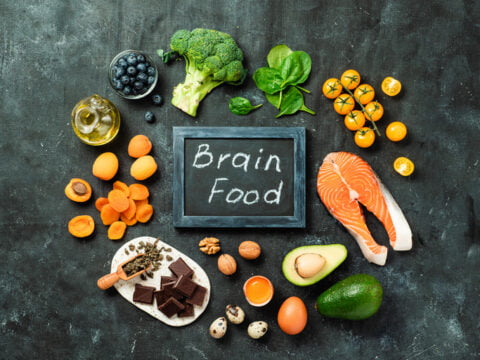Imagine having a lifestyle that not only improves your overall well-being but also boosts the health of your brain. How amazing would it be to make choices that promote cognitive wellness and keep your mind sharp as you age? Well, today we are going to discuss exactly that – how to create a brain health-friendly lifestyle with 12 practical steps.
As we grow older, it’s natural for our bodies and minds to change. Our brains may not be as agile as they once were, and we may find ourselves facing certain cognitive challenges. But fear not! There are numerous strategies and habits we can adopt to support our cognitive health and maintain an active and engaged mind.
By incorporating simple yet effective practices into our daily routines, we can enhance our brain’s function and protect against age-related decline. From staying physically active to nourishing our bodies with healthy foods, there is so much we can do to promote our cognitive wellness.
In this blog, we will explore 12 practical steps that can help us create a brain-health-friendly lifestyle. We will delve into the importance of exercise, proper nutrition, mental stimulation, quality sleep, social connections, stress management, and more.
These steps are designed to empower you with the knowledge and tools needed to make positive changes in your senior lifestyle choices. Let’s dive in!
1. Stay physically active
Regular exercise not only benefits your physical health but also has a positive impact on your brain. Engaging in activities like walking, swimming, or yoga can enhance blood flow to the brain, stimulate the growth of new neurons, and improve memory and cognition. This dual benefit underscores the importance of staying active for both body and mind.
| Myth: “It’s too late to start being physically active in old age. I should take it easy.” Fact: It’s never too late to start! Regular physical activity in older age brings numerous health benefits. It can improve strength, balance, and flexibility, reducing the risk of falls. |
2. Adopt a healthy diet
Nutrition plays a crucial role in brain health, impacting memory loss and cognitive age. Consuming a diet rich in fruits, vegetables, whole grains, lean proteins, and healthy fats provides essential nutrients for optimal brain function. Include foods like blueberries, leafy greens, fatty fish, nuts, and seeds in your meals to promote cognitive wellness, enhance memory retention, and potentially slow the progression of cognitive ageing.
| Easy recipe: Indulge in a wholesome Indian dish that’s not just delicious but also great for your brain! Make a tasty spinach and salmon curry infused with aromatics like turmeric, ginger, and cumin. Serve this flavourful curry over a bed of fragrant basmati rice for a satisfying and nourishing meal that not only delights your taste buds but also supports cognitive wellness. |
3. Get sufficient sleep
A good night’s sleep is vital for brain health and cognitive function. Aim for seven to eight hours of quality sleep each night. Establish a relaxing bedtime routine, keep your bedroom cool and dark, and limit electronic device usage before bed to ensure restful sleep.
4. Stimulate your brain
Keeping your brain active with mental stimulation can help maintain cognitive abilities and prevent decline. Engage in cognitive health strategies like reading books, solving puzzles or crosswords, learning new skills or languages, or playing strategy games to challenge your mind.
| Word association game: Gather in a circle and kick off with a word, like “beach.” The next person connects by saying a word related to it, such as “waves.” Keep the game going with each person adding a related word. It’s about quick thinking and linking ideas! Benefits: This game stimulates cognitive function by challenging memory recall and encouraging quick thinking. It fosters mental agility and linguistic skills, making it an engaging and beneficial activity for older individuals. Additionally, the social interaction involved promotes a sense of connection and enjoyment. |
5. Manage stress
Chronic stress can have detrimental effects on brain health. Find stress management techniques that work for you, such as deep breathing exercises, meditation, practising mindfulness, engaging in hobbies you enjoy, or seeking support from loved ones or professionals.
S
6. Maintain social connections
Social interactions are essential for brain health and emotional well-being. Stay connected with family, friends, and your community. Join clubs or groups that share your interests or volunteer for activities that allow you to connect with others.
7. Limit alcohol consumption
Excessive alcohol consumption can negatively impact brain health. It’s important to limit alcohol intake to moderate levels or avoid it altogether. If you choose to drink, do so in moderation and always consult with your healthcare provider regarding any potential risks.
8. Stop smoking
Smoking is harmful to both your overall health and brain function. Quitting smoking has numerous benefits, including improved circulation, reduced risk of stroke, and better cognitive function. Seek support from healthcare professionals or cessation programmes if you need assistance in quitting.
9. Protect your head
Taking precautions to prevent head injuries is vital for brain health. Wear seatbelts when driving, use helmets while cycling or participating in sports activities, and make your living environment safe by removing tripping hazards and installing handrails where necessary.
10. Manage chronic conditions
Chronic conditions like diabetes, hypertension, and heart disease can affect brain health if left uncontrolled. Work closely with your healthcare provider to manage these conditions effectively through medication, lifestyle modifications, and regular check-ups.
11. Stay mentally and emotionally healthy
Ensuring good mental and emotional well-being is key to a healthy brain. Incorporate self-care into your routine—try journaling, enjoying music, indulging in hobbies that bring joy, spending time in nature, or considering therapy if needed. These practices contribute to a holistic approach to fostering a resilient and thriving mind.
12. Stay hydrated
Maintaining adequate hydration is vital for optimal brain function. Make a conscious effort to stay well-hydrated throughout the day, supporting cognitive abilities. Minimise the intake of sugary beverages, as they can have negative effects on your overall health. Prioritising hydration is a simple yet effective step in nurturing your brain’s well-being.
S
| Fun tip: Make a game out of drinking water! Use colourful, oversized straws or funky water bottles. Challenge yourself to finish a bottle during your favourite TV show or while listening to upbeat music. Adding a touch of fun to hydration makes it less of a task and more of an enjoyable daily ritual. |
In conclusion, creating a brain-health-friendly lifestyle is essential for maintaining cognitive wellness as we age. By taking small steps every day, such as staying physically active, eating a balanced diet, getting enough sleep, challenging your mind, socialising regularly, managing stress, and staying positive, you can create a brain-health-friendly lifestyle that supports your overall well-being.
Remember, taking care of your brain is a lifelong journey. It’s never too late to start making wellness habits for ageing adults a part of your daily routine. Embracing a brain health-friendly lifestyle not only benefits you but also those around you, as you continue to engage with the world and share your wisdom and experiences.
So why wait? Start implementing these practical steps for cognitive wellness and experience the positive impact they can have on your brain health. Your brain is an incredible organ capable of adapting and growing throughout life – let’s give it the love and care it deserves!
To discover more about brain health and access tailored resources, including cognitive health strategies and tests designed for seniors like yourself, explore Ivory. Take the first step today!



